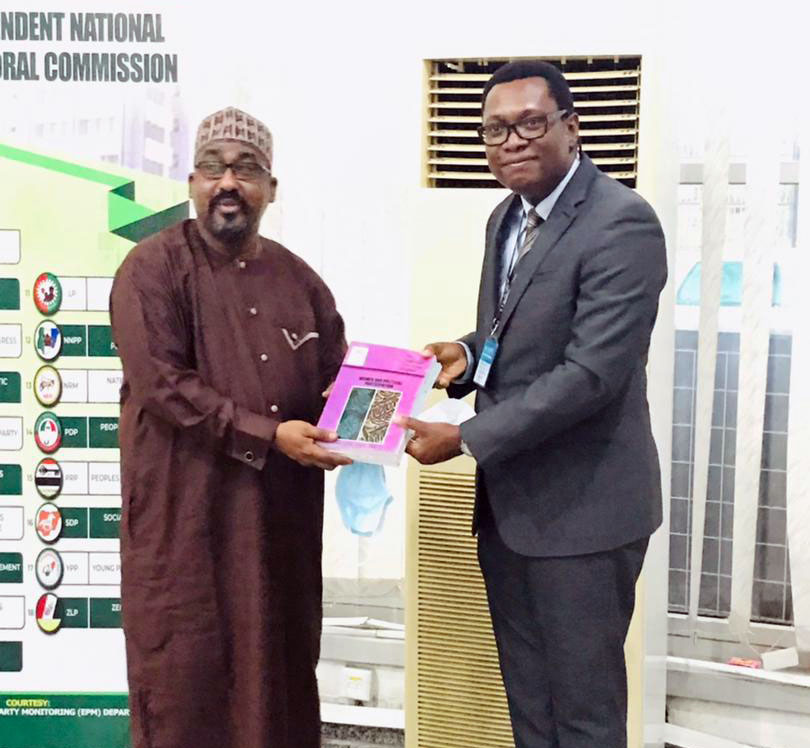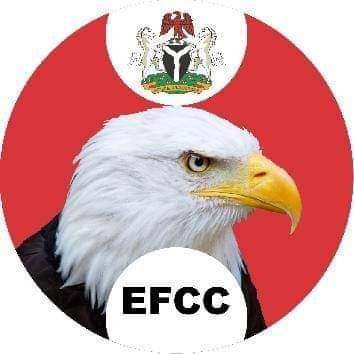Politics
2023: NSA Puts Top Politicians On Watch List

Ahead of the 2023 general elections and other off-season elections in the country, the Office of the National Security Adviser (ONSA) has placed politicians who exhibit tendencies to subvert the electoral process on the watch list.
Accordingly, the ONSA said heads of security and law enforcement agencies have been tasked to step up close monitoring and profiling of political actors no matter how highly placed.
The National Security Adviser (NSA), Maj. Gen. Babagana Monguno (rtd), disclosed this in his remarks at the meeting of the Inter Agency Consultative Committee on Election Security organised by the Independent National Electoral Commission (INEC) in Abuja.
Monguno said that his office had noted with utmost concern, the growing uncertainty heralding the conduct of party primaries for the 2023 general elections.
“This is in addition to the unabated spate of violence that threatened the upcoming off-cycle gubernatorial elections in Ekiti and Osun states, arising from internal party wrangling, increasing acrimony and bickering among political actors as well as the inability of various contending political blocs to amicably resolve differences in line with democratic tenants,” he said.
Mungono who was represented by Sanusi Galadima, said the disturbing development had already culminated in intense power play capable of heightening unnecessary political tension across the country.
More worrisome according to him is the unguarded utterances by some highly respected individuals and groups which, more often than not, amplify divisive narratives to the detriment of national security and stability.
Accordingly, he said, “Heads of security and law enforcement agencies have been tasked to step up close monitoring and profiling of political actors no matter highly placed who exhibit tendencies to subvert the electoral process, even as thugs and their sponsors would equally be trailed for possible arrest and prosecution.”
He emphasised the need for INEC to enjoin political parties to consistently abide by prescribed rules as outlined in their respective manifestoes.
Earlier in his remarks, the INEC chairman, Prof. Mahmood Yakubu, lamented the general security situation in the country and its impact on the electoral process which according to him is a source of concern to the commission.
Yakubu said the commission was however confident that with nine months to the 2023 general election, there was enough time to respond to the security challenges and secure the nation for elections to take place nationwide. He said the timetable for the election has also been released.
“Let us not wait until a few weeks to the election before we realise that time is not on our side and begin to seek for extension of timelines. The time to act is now.
We wish to reassure the security agencies that we will continue to work cooperatively with you to ensure the success of all forthcoming elections and electoral activities,” he said.
Politics
Rivers Political Crisis: PANDEF Urges Restraint, Mutual Forbearance

Accordingg to the statement, the Board and National Executive Committee of PANDEF, noted with very grave concern the recent spate of political developments in Rivers State.
“Regrettably, these developments have now degenerated into the decision of the Rivers State House of Assembly to commence impeachment proceedings against the governor and deputy governor.
“This is a deeply disturbing situation that demands urgent attention in order to forestall further escalation and breakdown of law and order.
“This concern is heightened by the critical importance and strategic centrality of Rivers to the Niger Delta region and to the broader socio-political stability and economic wellbeing of Nigeria as a whole”, the statement said.
The Forum called on all parties involved in the resurgent political imbroglio to sheathe their swords and embrace peace.
“This should be guided by the principles of give-and-take, dialogue, tolerance, and political equanimity.
“All stakeholders must place paramount importance on peace, development and the welfare of the people of Rivers.
“We must now focus squarely on good governance and development of the state,” the Forum said.
PANDEF commended President Bola Tinubu, the leadership of the All Progressives Congress (APC), respected elders of Rivers State, and other well-meaning Nigerians for their previous and ongoing efforts aimed at restoring peace and stability in the state.
Politics
Wike’s LGAs Tour Violates Electoral Laws — Sara-Igbe

Speaking in an interview on Saturday, January 10, Chief Sara-Igbe alleged that the minister had flouted regulations governing the commencement of electioneering campaigns by moving from one local government area to another to galvanise political support.
According to him, the action amounted to a clear breach of electoral guidelines being carried out with a troubling sense of impunity that could undermine the rule of law.
“Wike has violated the electoral laws of campaigning by going from local government to local government to talk to the people. He travelled from one local government to another. As a result of his visits to local government areas, he has broken election regulations and continues to do all these things without fear of repercussions”, Chief Sara-Igbe said.
The remarks came as Chief Wike was set to round off a state-wide “thank-you” tour that covered all 23 local government areas of Rivers State.
Although the minister had described the tour as an appreciation visit following support for President Bola Tinubu in the 2023 general elections, critics say the engagements have assumed an overtly political character.
Observers note that during several stops, including recent visits to Andoni and Bonny local government areas, the minister rallied supporters across party lines under what he termed a “Rainbow Coalition,” a move widely interpreted as part of a broader political strategy.
During these engagements, Chief Wike was also reported to have made remarks perceived as a veiled challenge to the authority of Governor Siminalayi Fubara, while repeatedly referencing the 2027 elections and urging supporters to prepare to “correct the mistake” of 2023.
Chief Sara-Igbe warned that allowing such activities to continue unchecked could erode public confidence in Nigeria’s electoral process and called on relevant authorities to enforce existing laws without fear or favour.
Politics
EFCC Alleges Blackmail Plot By Opposition Politicians

The Commission, in a statement on Wednesday, claimed that there were plans by the same group to escalate a smear campaign against its Chairman, Ola Olukoyede, to frustrate ongoing investigations and prosecutions involving prominent individuals.
The statement endorsed by the agency’s spokesman, Mr Dele Oyewale, claimed that the action was intended to distract the Commission through unfounded allegations of political bias in the discharge of its duties.
The EFCC warned that it would not stand by and watch “those recruited into this ignoble enterprise” or allow any attempt to derail it from “the patriotic task of improving public accountability in Nigeria.”
The Commission made it clear that those recruited into this venture were under close watch, adding that it would not tolerate any attempt to distract it from the patriotic task of improving public accountability in Nigeria.
“The EFCC reiterates its non-political stance in all its activities. Facts on the ground clearly show that any political actor belonging to the ruling party or opposition party, with corruption baggage, has no hiding place from the operational radar and dynamics of the Commission.
“As a matter of fact, several strong members of the ruling and opposition parties are either facing trial before the courts or being investigated by the Commission.
“It is needful that Nigerians appreciate the fact that the Commission is keeping faith with its Establishment Act in all its operations.
“Therefore, the Commission reiterates its commitment to justice, without fear or favour, in the fulfilment of its mandate,” the statement pointed out.
-

 Editorial15 hours ago
Editorial15 hours agoBeyond Accessing Bonny By Road
-

 News17 hours ago
News17 hours agoSERAP Sues Govs, FCT Minister Over Security Vote Spending
-

 Sports15 hours ago
Sports15 hours agoTinubu Lauds Super Eagles’ after AFCON bronze triumph
-

 Niger Delta14 hours ago
Niger Delta14 hours agoINC Polls: Ogoriba Pledges To Continuously Stand For N’Delta Rights … Picks Presidential Form
-

 Sports15 hours ago
Sports15 hours agoFulham Manager Eager To Receive Iwobi, Others
-

 News17 hours ago
News17 hours agoAkande Proffers solution to insecurity in Nigeria
-

 Sports14 hours ago
Sports14 hours agoAFCON: Lookman gives Nigeria third place
-

 Sports15 hours ago
Sports15 hours ago“Mikel’s Influence Prevent Some Players Invitation To S’Eagles Camp”

